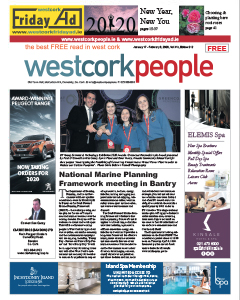As a mindfulness teacher, I have the privilege of working with a wide and diverse range of people, all with different reasons for wanting to learn mindfulness and all with their own story. Yet no matter what their backstory reveals, my conclusion is always that mindfulness is a leveller, it connects rather than separates us. Something else that connects us is our relationship with time and with being busy. We live in a culture that equates busyness with success. Yes, having a busy and fulfilling life is something to aspire to but not at the expense of our physical and mental health. The stress of being too busy takes its toll on us in so many ways and I have experienced this first hand in both my personal and professional life. I like being busy and productive to an extent, but through mindfulness training have learned the importance of creating a more sustainable way of life than I previously lived. Mindfulness skills help in creating a balance between being busy and resting, instead of driving ourselves too hard and almost, or actually, reaching breaking point.
Mindfulness, in short, means paying attention to our present moment experience, directly through the body and the senses. Mindfulness offers us both formal and informal everyday practices. There is great benefit to be had from ‘formal’ guided meditation practices, however, anyone who meditates will know that sitting in stillness and in silence can be very difficult. Support and guidance from a suitably trained teacher and a course or group can be very helpful, particularly when you’re beginning. Informal mindfulness practices are also beneficial and can be integrated into everyday life. We can weave our mindfulness practice into our very busy lives in different ways. I usually recommend starting where you are at. For some people that could be simply a matter of taking a pause between tasks and taking two or three slow, deep breaths. For others it may be to attempt single-tasking, that is, placing all your attention on whatever activity or task you are doing until it is finished.
Sound easy? Why not give it a shot? On nearing the completion of a task, most of us have the next one lined up in our minds already and that is how we operate all day long. Exhausting ourselves day in and day out, perhaps with a feeling of achieving nothing or certainly of getting nowhere fast. Once a sought-after skill, research is now showing that instead of increasing our productivity, multi-tasking divides our attention between many tasks and so splits our focus and concentration, weakening rather than enhancing productivity. When we single-task we place almost 100 per cent attention on the job at hand and, as a result, can get more done but in a calm and more focused way. Single-tasking presents us with another way of gently returning the mind to focusing on the present moment, instead of on what needs to get done next.
It may appear ironic, but we have more time in the day when we focus on one job at a time. As well as a sense of completion, we get more achieved, have a bit more space and somehow time seems to expand just a little. I often use my daily work or home tasks as my mindfulness practice, by staying at one task until it is completed, or until I have done enough for the day. This is not easy, especially if you have been used to doing several jobs at once. Our minds will constantly present a multitude of distractions to get us to move away from the task or start another job, often ending up with a string of half-finished jobs and a head full of busy-ness. If this sounds familiar, then perhaps you could try single-tasking by focusing on something most of us do every day.
Choose an everyday activity, like drinking a cup of tea, but place your full attention on it, moment by moment, using your senses. For example, listen to the kettle boiling, listen and watch as you pour the hot water into your cup, watch the steam rising, smell the aroma of your hot drink. Hold the cup with both hands and feel the warmth against your skin. Take a sip and experience the taste of the tea in your mouth, the warming sensations as you swallow it and so on. Take in and savour the entire experience by opening to all your senses, even taking in any sounds around you as you sip your tea slowly. Every time you find your mind wandering, see if you can bring it back to focusing on the senses, the here and now. Notice how the quality of your experience is different to the many other cups of tea or hot drinks you may take during the day. Enjoy the simple pleasure and comfort of this everyday ritual, which can act as a gentle way of training the mind to return to the task at hand and allow the body to sense into what’s happening. Try starting with one mindful cup of tea every day and in this way, we can gently cultivate our ability to expand mindful awareness into other everyday activities, both at work and at home.
“Watch out for an upcoming mindfulness and self-care workshop on Saturday, March 23 at the Market Street Clinic, Skibbereen. For information on this or other upcoming training courses, workshops or retreats you can contact Susan on 087 2700572 or email: susanoreganmindfulness@gmail.com.



